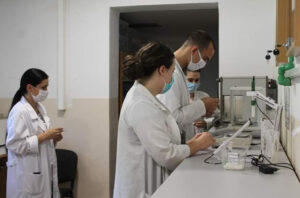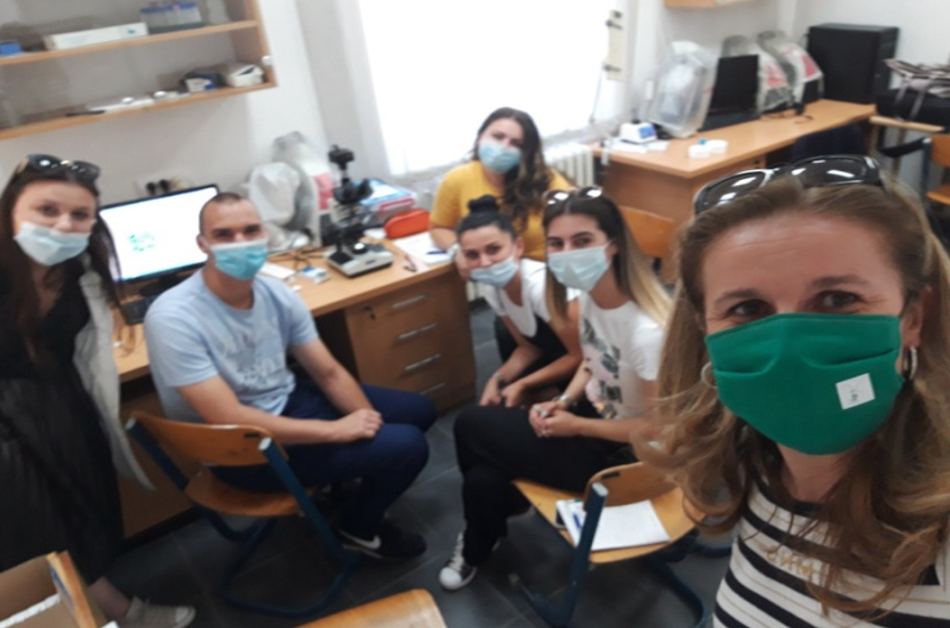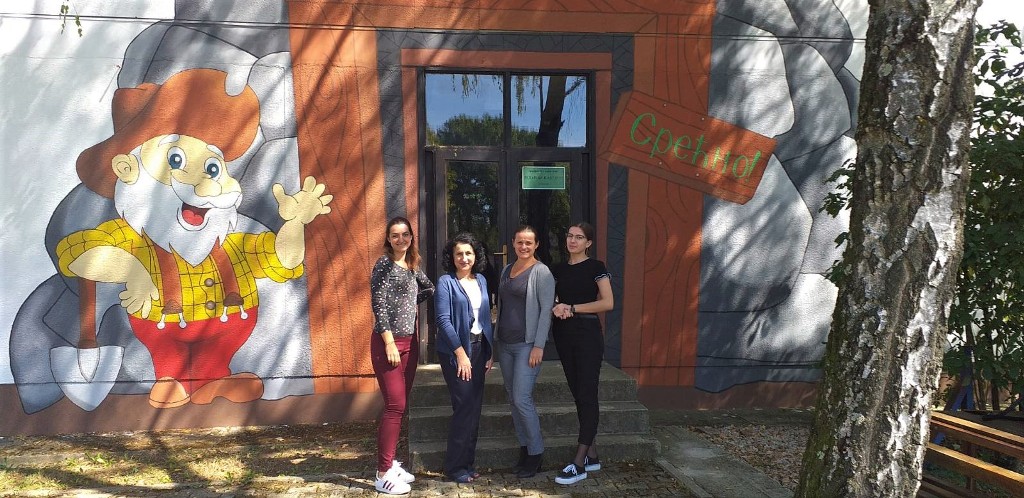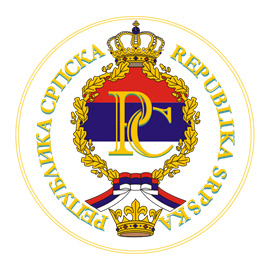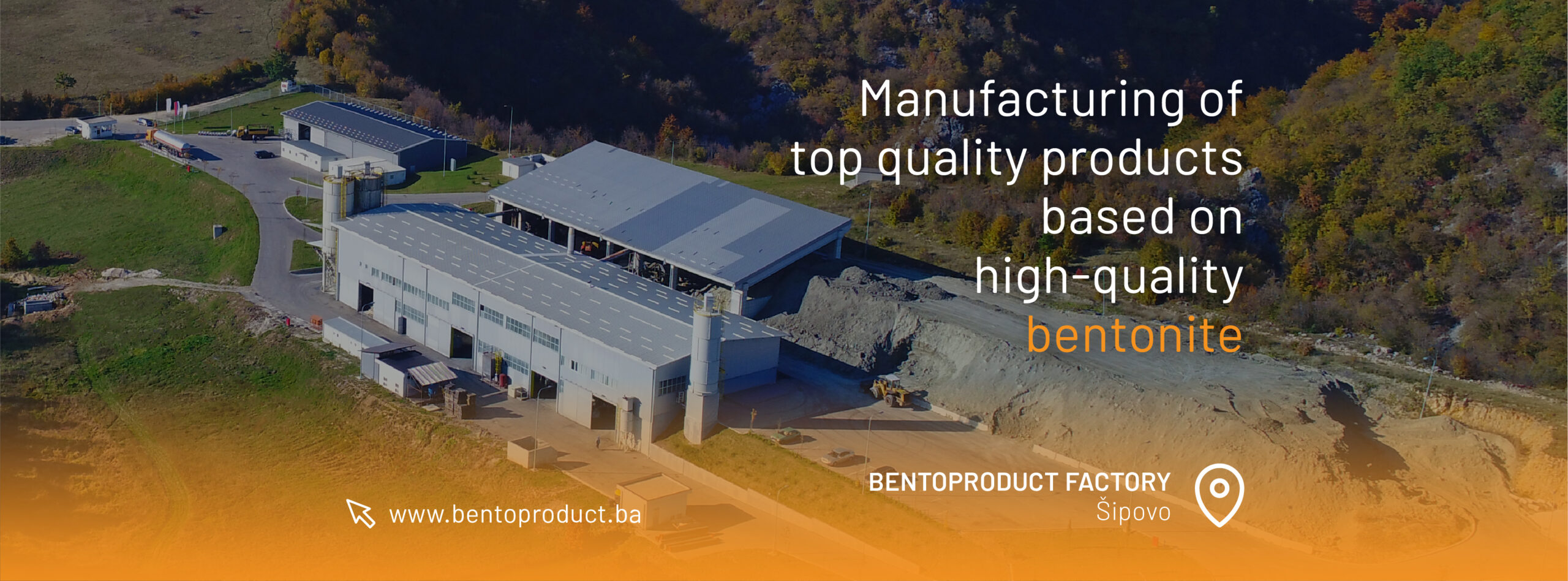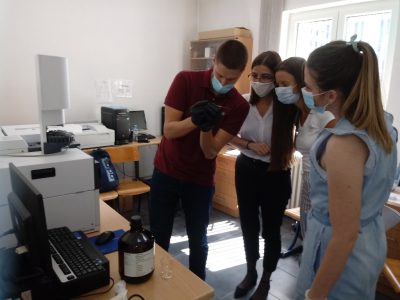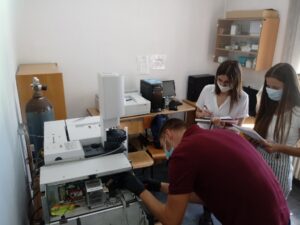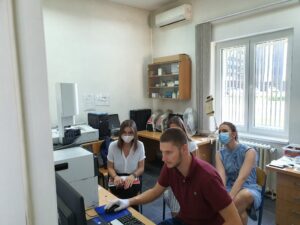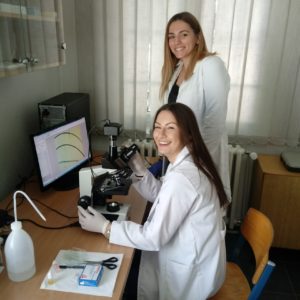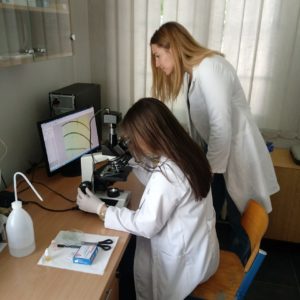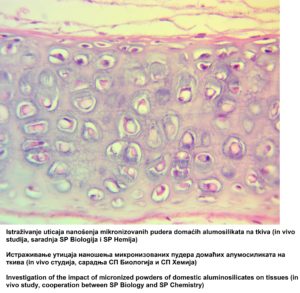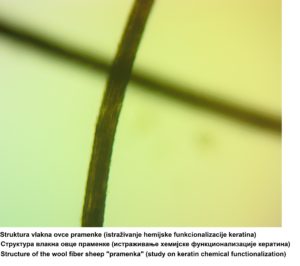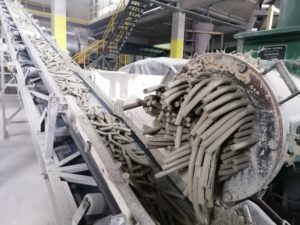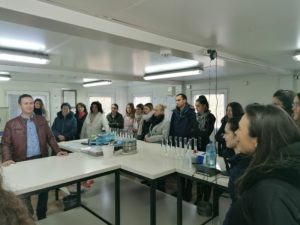Four graduate students of Chemistry Department, Nina Babić, Dragana Žabić, Zorica Jerkić and Stefan Četić participated in research and experimental work on the scientific research project “Phytosynthesis, characterization and biomedical application of metal (Ag, Si, Cu) and oxide (ZnO, TiO2, CuO, Fe2O3) nanoparticle: microbiological, biokinetic and toxicological aspect” which is financed by the Ministry of Scientific and Technological Development, Higher Education and Information Society of Republic of Srpska, under the mentorship of prof. dr Dijana Jelić and senior assistant Dragana Gajić, from the Department of Physical Chemistry, along with prof. dr Aleksandra Šmitran from the Faculty of Medicine.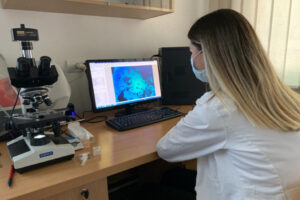
Through experimental work, students were introduced and learned to work on several different instruments, necessary for the characterization of the materials they have synthesized. They mastered experiments involving photocatalytic and antimicrobial ability of metallic nanoparticles. The results of their participation in the project were presented at the 13th International Conference Contemporary Materials 2020 entitled “Empowering students in science: Phytosynthesis, characterization and biomedical application of metallic (Ag, Si, Cu) and oxide (ZnO, TiO2, CuO, Fe2O3) nanoparticles: microbiology, biokinetics and toxicology aspect”. At the conference, 84 papers were presented and the work of our students was awarded along with three others paper by an expert commission consisting of eminent professors and academics as the best poster presentation.
Two main goals of the project were achieved: successful synthesis of new materials by the method of green chemistry, an economical and environmentally friendly way of synthesis, gaining insight into metallic nanoparticles photocatalytic and antimicrobial potentials, and active involvement of students in projects and scientific research. The achieved results confirm the quality of joint work and the importance of involving students in science, either through work on scientific projects or professional internships, where practical experience is gained and previously acquired knowledge is expanded.